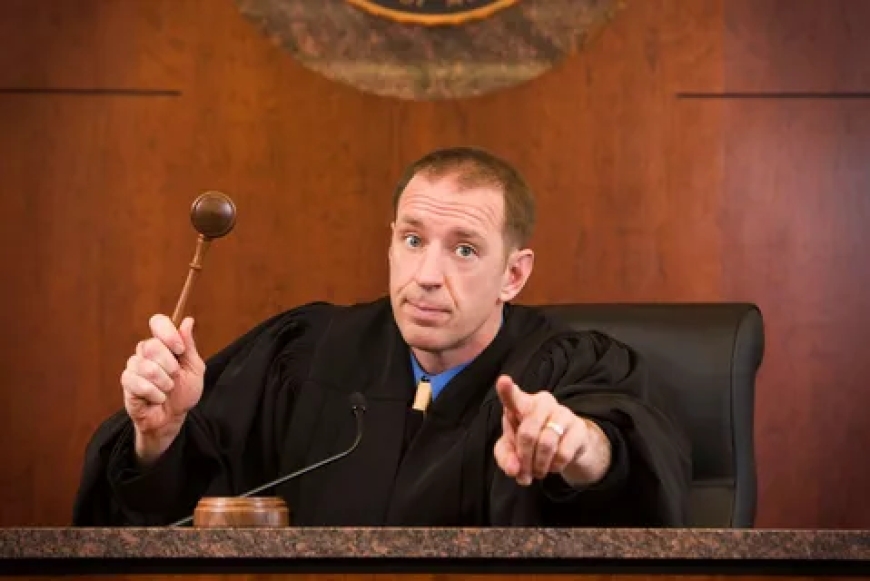Protecting Workers: Title VII Gender Discrimination Explained
Many workers face unfair treatment because of their gender. Title VII gender discrimination laws protect employees from unfair actions based on their gender or sex.

Many workers face unfair treatment because of their gender. Title VII gender discrimination laws protect employees from unfair actions based on their gender or sex. This means it is illegal to treat workers differently because they are male, female, or non-binary. These laws help create fairness in hiring, pay, promotions, and job conditions. It is important for workers to know their rights under this law. A fair workplace helps everyone feel safe and respected.
What Gender Discrimination Looks Like
Gender discrimination can happen in many ways in the workplace. It can include unfair hiring or firing decisions based on gender. It can also happen if a worker is paid less for the same work because of gender. Harassment, unwanted comments, or jokes about someones gender are also forms of discrimination. Blocking promotions or training based on gender is unfair. These actions create an unsafe and unequal environment.
The Role of Employers in Preventing Discrimination
Employers should take action to prevent gender discrimination at work. They need to create clear policies about fair treatment for all workers. Employers should train managers and staff on respecting workers regardless of gender. Taking complaints seriously is important for building trust. Employers should investigate any claims of discrimination quickly and fairly. These steps help prevent legal issues and support a positive work culture.
Reporting Gender Discrimination
Workers should know they have the right to report discrimination. If you experience unfair treatment, write down what happened with dates and details. Report the situation to your human resources department or manager. If your employer does not take action, you can file a complaint with the Equal Employment Opportunity Commission (EEOC). Title VII protects you from retaliation for reporting discrimination. Taking action helps protect your rights at work.
The EEOCs Role in Title VII Cases
The EEOC helps enforce Title VII in workplaces across the country. If you file a complaint, the EEOC will investigate your claim fairly. They may help you and your employer find a fair solution to the problem. In some cases, the EEOC may take legal action to protect your rights. Workers do not have to face gender discrimination alone. The EEOC is there to support employees who face unfair treatment.
Gender Discrimination and Equal Pay
Equal pay is a key part of preventing gender discrimination. Workers should receive equal pay for equal work, regardless of gender. Sometimes, women or non-binary workers are paid less for the same job as men. This is a form of gender discrimination and is illegal under Title VII. Workers should review their pay and know their rights. Equal pay supports a fair and respectful workplace.
Examples of Gender Discrimination
An employer refusing to hire a woman because she may have children is discrimination. Making jokes about a mans role in child care is unfair treatment. Paying a female worker less for the same work as a male worker is discrimination. Blocking promotions because of gender is illegal under Title VII. Harassment based on gender identity also counts as discrimination. Workers should not have to face these issues in the workplace.
Why a Fair Workplace Matters
A fair workplace allows everyone to do their best work without fear. Workers who feel respected are more productive and engaged in their jobs. A safe environment helps reduce stress and mental health issues. Employers also benefit from lower turnover and higher trust among workers. Preventing gender discrimination is part of building a healthy workplace. Respect and fairness should be part of every work environment.
Protecting Yourself Under Title VII
Knowing your rights is the first step in protecting yourself from discrimination. Workers should feel confident in reporting any unfair treatment they face. If you are unsure, you can talk to a lawyer or contact the EEOC for guidance. Keeping records of what happens can help support your claim. Title VII is there to protect you from unfair treatment at work. Using these protections helps create a better workplace for all.
Final Thoughts on Title VII and Gender Discrimination
Gender discrimination is harmful and illegal under Title VII. Workers should not face unfair treatment because of their gender or gender identity. Employers should create clear policies to prevent discrimination and promote fairness. Reporting discrimination helps protect your rights and improve your workplace. Everyone deserves to work in a place where they are respected and valued. Title VII gender discrimination protections are there to help you achieve that.






































